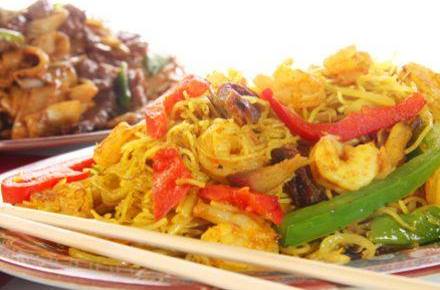When eating at a Chinese food vendor, consuming an elevated amount of the chemical compound monosodium glutamate, or MSG, is as natural an assumption as passing the egg rolls and soy sauce. The connection of this flavoring to Chinese foods is so strong it has become a stereotype. MSG is the reason many health conscious patrons dine solely on Chinese delicacies they have perfected themselves so they can leave MSG out of the recipe. What is lesser known is that MSG is the flavor many savor in almost any convenience dinner or snack.
The cream of anything soup used for home cooked casseroles and gravies? It’s in there. Those crackers packed in guilt free 100 calorie servings? It’s in there. The vegetarian chili with so many vitamins and minerals? It’s in there too.
Pass on the MSG
Should this information be shocking, concerning, or a simple piece of information for the next big trivia game? Perhaps the almost universal use of MSG in certain products should be received as a bit of all three.
MSG has been approved for use by the FDA, meaning that it is considered safe for use in food. Whether or not you feel comfortable using it depends on your tolerance for certain potential risks.
Secrets of the Secret Ingredient
Why would food producers be so keen to keep MSG out of the limelight? It has nothing to do with protecting some dark secret, but rather it is in an effort to distance themselves form the bad press MSG has been garnering for itself. After all, allegations like ‘inducing obesity’ and ‘addictive’ are not praise worthy attributes even if there hasn't been widespread conclusive studies done to back up the allegations.
With all the attention obesity and the causes of it are garnering, the medical research sector is alive with efforts to find a scapegoat. It seems more and more like chemical additives like MSG are filling this role.
These findings aren’t new or even startling. In fact, if a medical study called for obesity in its lab subjects the unfortunate rats, mice, or other test candidates are routinely fed diets loaded with MSG to achieve the necessary weight gain. It has been well accepted by the medical research community for years that MSG actually increases subjects’ appetites. If you are able to keep it out if your diet, you are still not guaranteed to be thin for life. Saturated fats, some perfectly safe but delicious artificial ingredients, some not so safe antibiotics and hormones, the list goes on… there are very few perfect foods that the average person can limit themselves to for life.
Along with ingesting large amounts of MSG in foods to cause weight gain, MSG can potentially have effects on energy levels. While some people have reported experiencing decreased energy after consuming MSG, there isn't any solid scientific evidence that has established a connection.
Is MSG Really An Enemy?
Given MSG's ability to increase appetite, potentially leading to weight gain, you may begin thinking of it as some sort of enemy. Couple that with the other reported side effects, and it's no wonder why people are wary of this additive. A lot of the fear around MSG is, however, overblown.
In addition to fatigue, many of the other reported symptoms of MSG consumption, such as headaches, chest pain, and breathing difficulties, are not linked to any conclusive scientific research. It has been theorized that some people may have a sensitivity to MSG, in the same way that some people are sensitive to red food dye or lactose.
You can safely consume MSG without fear of anything terrible happening to your body or health. Keep in mind that this additive can increase appetite, and work around that potential issue accordingly. Many foods contain MSG, although the additive has become less popular in recent years due to all of the negative claims surrounding it.
If you believe that you're experiencing side effects after consuming MSG, talk to your doctor. They'll be able to discuss your experiences and concerns with you. Together, you may determine that you have a sensitivity to MSG, or that something else is amiss. Be honest and don't be afraid to tell your doctor the whole story.
To bottom line the MSG issue, there are products to choose from that do not contain MSG, but you'll need to choose the appropriate one for the recipe you're using. Or pick your battles. Limit your consumption of MSG while still enjoying Chinese restaurant foods and your favorite recipes. The same goes for salt, sugar, and fat. Moderation is the key to health.
The content of this article should not be taken as professional medical advice. Always consult a medical professional before making a decision pertaining to your health or the health of someone you know.
The image featured at the top of this post is ©Hannamariah/Shutterstock.com
